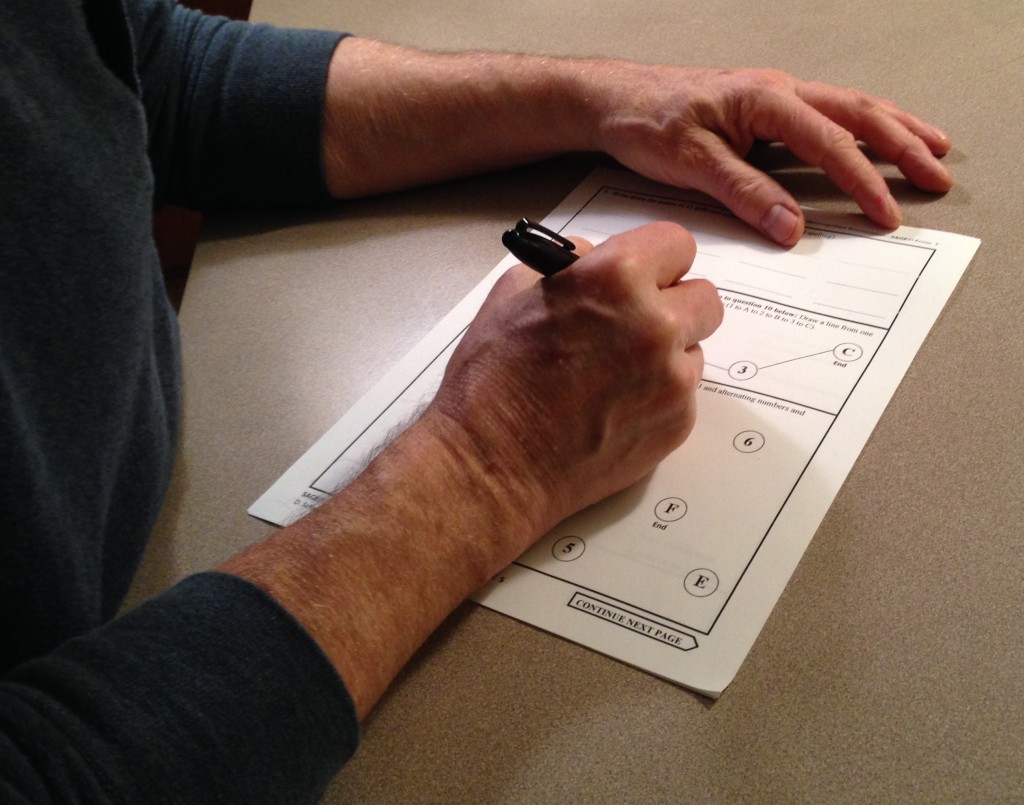Worried because you’re not young anymore and you’ve started forgetting more things than you used to? Why you left the room? Where you put your glasses? Whether you turned off the iron? A name? An appointment?
Someone told me that as long as you realize you’ve forgotten something, you’re ok. It’s when you don’t even have a clue that you (or your loved ones) should start being concerned. So far, so good, but I still can’t help but worry now and again.
I know I’m not alone. An estimated 5 million Americans have Alzheimer’s disease and those numbers are expected to almost triple by 2050.
Testing for early dementia
Scientists at The Ohio State University Wexner Medical Center developed a written memory test that can be done at home called the Self-Administered Gerocognitive Examination or SAGE test. It takes less than 15 minutes to complete and may uncover early signs of Alzheimer’s or other causes of dementia.
The researchers enlisted 1047 people over the age of 50 to take the test and identified twenty-eight percent with cognitive impairment.
Dr. Douglas Scharre, who heads the Memory Disorders Research Center at Ohio State, helped develop the test. In a press release, he said that doctors often don’t recognize subtle cognitive problems during routine office visits. He said people who take the test at home should share the results with their doctors because it can provide important baseline information. Anyone who misses six or more points should probably have further testing.
“If we catch this cognitive change really early, then we can start potential treatments much earlier than without having this test,” Dr. Scharre said. “We can give them the test periodically and, the moment we notice any changes in their cognitive abilities, we can intervene much more rapidly.”
What to expect
The SAGE test consists of 22 questions that evaluate the following areas:
- Orientation (month, date, year)
- Language
- Reasoning
- Visual and spatial awareness
- Problem-solving
- Memory
Sample questions include:
- What is today’s date?
- Do you have more difficulties doing everyday activities due to thinking problems?
- How are a watch and a ruler similar?
- Draw a large face of a clock and place in the numbers
- Have you finished?
Importance of early detection
Dr. Scharre says treatments are more effective when they’re started early. Unfortunately, most people wait three to four years after symptoms first appear.
Cognitive or memory issues don’t always mean someone has dementia. That’s another reason it’s important to identify symptoms early on. Several things can cause dementia and some are reversible.
Reversible causes of dementia
-
-
- Depression
- Infections
- Dehydration or malnutrition
- Alcohol abuse
- Vitamin deficiency
- Medication complications
- Metabolic imbalance
-
“Hopefully, this test will help change those situations,” says Dr. Scharre. “We are finding better treatments, and we know that patients do much better if they start the treatments sooner than later.”
Take the SAGE test
If you’d like to take the SAGE test, you can download a copy from the Ohio State University Wexner Medical Center website.
Remember, it’s important to share the results with your doctor. Physician instructions for scoring and interpreting results can be downloaded from the same link as above.
If you miss six or more questions, you may need further testing, but even if you don’t get any wrong, it can provide important baseline information.



Leave A Comment